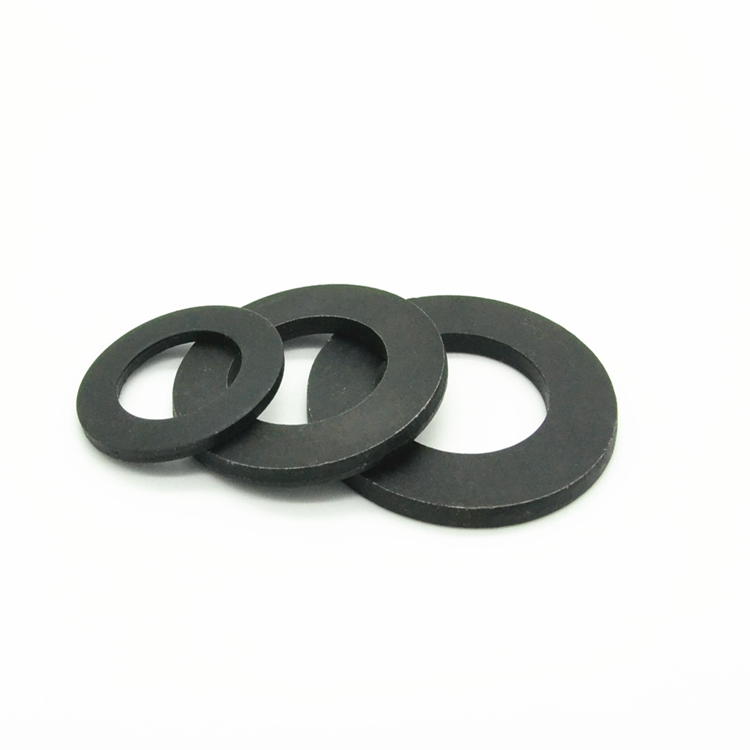Stud Bolt Manufacturers and ASME B18.2.1 Standards Overview and Best Practices
டிசம்பர் . 10, 2024 01:12 Back to list
Stud Bolt Manufacturers and ASME B18.2.1 Standards Overview and Best Practices
Understanding ASME B18.2.1 Standard for Stud Bolt Manufacturers
The ASME (American Society of Mechanical Engineers) B18.2.1 standard plays a crucial role in defining the specifications for stud bolts, which are instrumental in providing stability and strength in various mechanical applications. Stud bolts are commonly used in industries such as oil and gas, power generation, and construction, where safety and reliability are paramount. This article will delve into the significance of the ASME B18.2.1 standard, its specifications, and the implications for manufacturers and end-users alike.
What are Stud Bolts?
Stud bolts are long, threaded rods that are utilized to fasten two or more objects together. They differ from conventional bolts in that they typically have threads along their entire length, making them versatile for various applications. Stud bolts come in two forms full-threaded and partial-threaded. Full-threaded stud bolts enable a more flexible adjustment in tensioning, while partial-threaded variants often facilitate a better grip with easier installation.
Significance of ASME B18.2.1
The ASME B18.2.1 standard sets forth detailed requirements for the design, manufacturing, and testing of stud bolts. This specification covers different types of stud bolts including, but not limited to, those used in flanged joints and general assembly applications. By adhering to this standard, manufacturers can ensure consistency and reliability in their product offerings, which is essential in high-stakes industries.
1. Uniform Standards The ASME B18.2.1 establishes uniform dimensions and mechanical properties, thereby reducing discrepancies that may arise from varying manufacturing processes. This uniformity is crucial for engineers and designers when selecting components, as it assures compatibility and performance under specified conditions.
2. Quality Assurance Compliance with the ASME B18.2.1 standard implies that the manufacturer has undergone rigorous testing and inspection processes. This not only bolsters the credibility of manufacturers but also instills confidence in end-users regarding the quality and longevity of the stud bolts they are purchasing.
3. Safety and Performance One of the foremost benefits of adhering to ASME standards is heightened safety. Stud bolts that meet these specifications are designed to withstand significant stress and strain, reducing the risk of mechanical failures that could lead to catastrophic accidents. This is especially relevant in sectors where equipment failure can result in loss of life or substantial financial damage.
asme b18 2.1 stud bolt manufacturers

Considerations for Manufacturers
For stud bolt manufacturers, complying with the ASME B18.2.1 standard involves several considerations
- Material Selection Manufacturers must choose appropriate materials that not only comply with the standard’s specifications but also cater to the functional requirements of their end products. Common materials include carbon steel, stainless steel, and other alloys, depending on the application’s environment and load conditions.
- Production Processes The standard provides guidelines on permissible manufacturing processes, which can greatly influence the mechanical properties of the finished product. Manufacturers must ensure that their production methods—whether hot forging, cold forming, or machining—uphold the integrity of the stud bolts.
- Testing and Certification Compliance is verified through testing procedures that evaluate strength, tensile properties, and dimensional accuracy. Manufacturers should incorporate rigorous testing protocols and consider third-party certification to bolster their market position.
Conclusion
The ASME B18.2.1 standard is integral to the manufacturing of stud bolts, ensuring that they meet rigorous performance and safety criteria. By adhering to this standard, manufacturers not only enhance the reliability and durability of their products but also foster trust among clients and industries they serve.
For end-users, choosing stud bolts that meet the ASME B18.2.1 specifications is a critical step in ensuring the safety and success of their projects. As industries continue to evolve and require higher levels of safety and performance, compliance with established standards will remain a fundamental aspect of engineering excellence. In conclusion, the ASME B18.2.1 not only shapes the future of stud bolt manufacturing but also upholds the vital principles of safety and reliability in engineering designs.
Latest news
-
Reliable Wire Bolts Suppliers | Quality Zinc Plated Fasteners
NewsAug.26,2025
-
Wire Bolts Suppliers: Durable & Reliable Fasteners for Every Project
NewsAug.25,2025
-
Premium Cabinet Bolts Supplier | Wholesale & Custom Solutions
NewsAug.24,2025
-
Reliable Axle Nuts Supplier | Quality & Precision Fasteners
NewsAug.23,2025
-
Durable Bolts for Lawn Mower Handle - Top Supplier & Manufacturer
NewsAug.22,2025
-
High-Quality Bolts for Lawn Mower Handle Supplier & Manufacturer
NewsAug.21,2025
